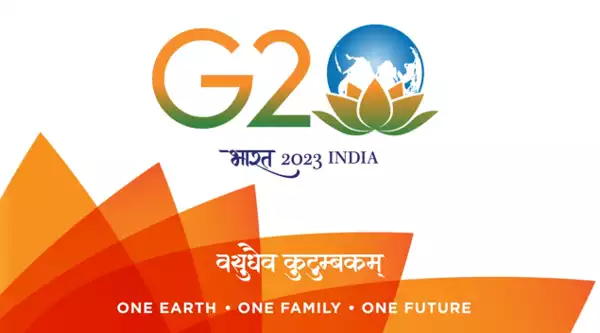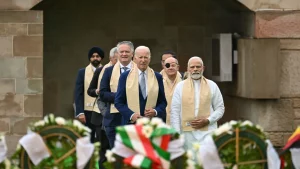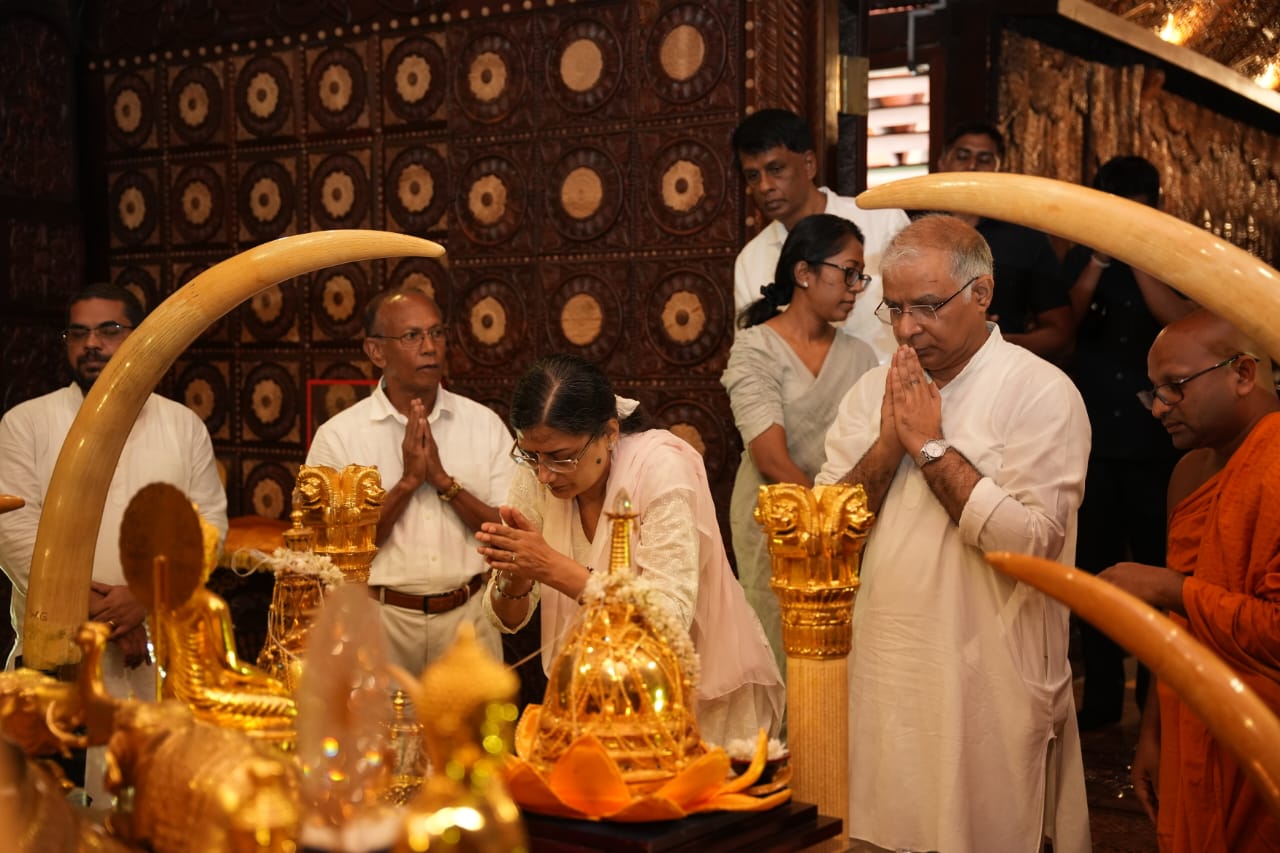
Why did PM Modi gift a cotton scarf to G20 leaders and what’s the significance?
Why did PM Modi gift a cotton scarf to G20 leaders and what’s the significance?
Narendra Modi’s decision to present world leaders with a hand-spun scarf in New Delhi was an act steeped in historical and symbolic importance for the Indian prime minister. He aimed to highlight the country’s freedom movement on the global stage.
As leaders of the Group of 20 (G20) nations entered the Rajghat memorial for Mohandas K. Gandhi, India’s revered father of independence who was assassinated in 1948, they were met with khadi scarves—a pivotal symbol of his non-violent resistance campaign that played a crucial role in India’s liberation from British colonial rule.
Modi was observed draping the handwoven, off-white cotton fabric around the necks of US President Joe Biden and British Prime Minister Rishi Sunak, among others. They posed for photographs in front of a vast backdrop depicting the Sabarmati Ashram in the state of Gujarat—one of the many residences Gandhi occupied across India.
For Gandhi, a figure who has evolved into a global icon of peace and non-violence, khadi scarves represented self-reliance. They were garments that could be locally produced by Indians, intended to boycott imported or British-made products during India’s colonial era. This demonstration illustrated to Indians that they possessed the potential to develop their industrial capabilities, liberating the country from reliance on its former colonial rulers.
Gandhi frequently wove his khadi clothing on a charkha, or spinning wheel, a contraption that has since come to symbolize the country’s political and economic emancipation.
At Rajghat, world leaders stood in silence with the scarves adorning their necks, positioned before an elevated marble platform erected to commemorate the site of Gandhi’s cremation.





